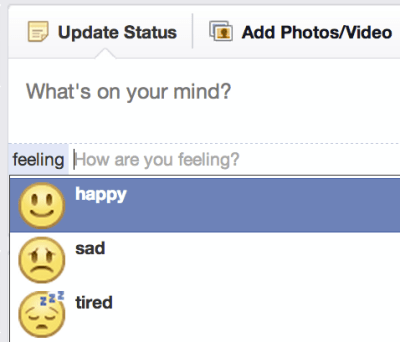According to a study from the University of California, San Diego, feelings on Facebook can spread from user to user like a virus. In other words, your friends’ moods can affect your moods, positively or negatively.
As we well know, humans can spread their moods to each other in face-to-face situations. A grumpy co-worker can make you grumpy while a happy significant other can cheer you up. This also happens, wrote the researchers, “among strangers or near-strangers.” But no one had quite figured out if it spread via social media or not. Until now.
Using anonymized data, PhD student Lorenzo Coviello and Adam D. I. Kramer and Cameron Marlow from Facebook looked at English-language status updates over 1,180 days. Using automated text analysis, they assessed the mood and tenor of each post to get the “emotional content.”
What did they discover? First, they found that when it was rainy in a specific geographic location, the moods in that location tended to go negative, and positive posts fall. This could be seen as a “topic contagion.” However, the researchers wanted to see what happened to friends outside of that area who were unaffected by the rain. The effects, while small, were definitely interesting. The researchers write:
“If an emotional change in one person spreads and causes a change in many, then we may be dramatically underestimating the effectiveness of efforts to improve mental and physical health,” said James Fowler, professor of medical genetics and political science in the School of Medicine at UC San Diego and lead author. “We should be doing everything we can to measure the effects of social networks and to learn how to magnify them so that we can create an epidemic of well-being.”
In short, they found some correlation between, say, your mood and your friends’ moods on Facebook. When you feel bad, it actually spreads, digitally, to your friends, something that should give us pause next time we post “Life sucks” on Twitter. The researchers believe this could help improve public well-being through social media and widespread messaging. All the more reason to pick the smiley face over the sad face.
